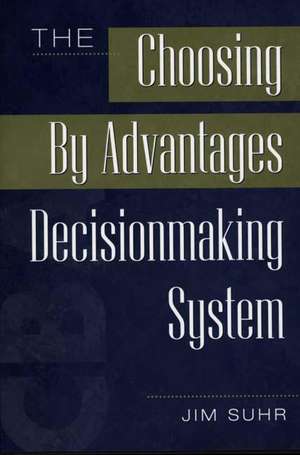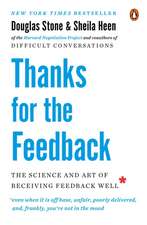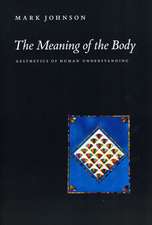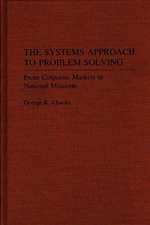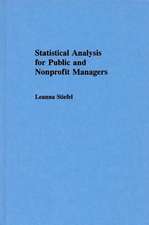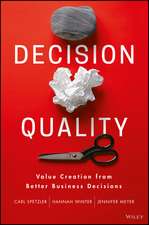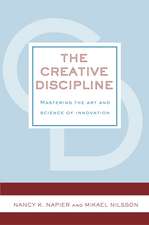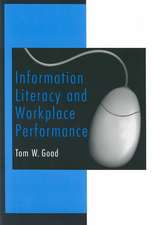The Choosing By Advantages Decisionmaking System
Autor Jim Suhren Limba Engleză Hardback – 29 ian 1999 – vârsta până la 17 ani
Preț: 594.78 lei
Preț vechi: 851.38 lei
-30% Nou
Puncte Express: 892
Preț estimativ în valută:
113.86€ • 117.10$ • 94.46£
113.86€ • 117.10$ • 94.46£
Carte tipărită la comandă
Livrare economică 20 februarie-06 martie
Preluare comenzi: 021 569.72.76
Specificații
ISBN-13: 9781567202175
ISBN-10: 1567202179
Pagini: 304
Dimensiuni: 156 x 235 x 29 mm
Greutate: 0.64 kg
Ediția:New.
Editura: Bloomsbury Publishing
Colecția Praeger
Locul publicării:New York, United States
ISBN-10: 1567202179
Pagini: 304
Dimensiuni: 156 x 235 x 29 mm
Greutate: 0.64 kg
Ediția:New.
Editura: Bloomsbury Publishing
Colecția Praeger
Locul publicării:New York, United States
Notă biografică
JIM SUHR is co-founder and president of the Institute for Decision Innovations, Inc. Throughout his career as a farmer, teacher, civil engineer, and consultant he has continuously searched for practical ways to improve human performance.
Cuprins
Foreword by Mark JohnsonIntroductionThe Pivotal Cornerstone PrincipleDecisionmakers Must Use Sound MethodsDecisionmakers Must Learn How to Use Sound MethodsThe Fundamental Rule of Sound DecisionmakingWhat, Exactly, Is an Advantage?Two Central Questions and Four Central ActivitiesSound Methods Do Not Weigh Advantages and DisadvantagesInstant CBA and the Recognition-Response ProcessThe Five-Step Skill-Learning ProcessThe Principle of AnchoringAnchored Versus Unanchored Questions and JudgmentsThe Two-List MethodPreference Charts and Preference CurvesDeciding Importance: Three Principles and Four ConsiderationsThe Bridge Design ExperimentVital Thinking Skills for Sound DecisionmakingThe Sound Decisionmaking VocabularyIt Isn't "Just" a Matter of SemanticsSound Methods Do Not Weigh FactorsSound Methods Do Not Weigh AttributesSound Methods Weigh AdvantagesArithmetic, Reading, Writing, and Choosing By AdvantagesThe Methods PrincipleHow Can We Consistently Make Sound Decisions?How Can We Simplify Sound Decisionmaking?The Tabular MethodSpecial Methods for Complex DecisionsSpecial Methods for Money DecisionsSimple Methods for Simple DecisionsVery Simple Methods for Very Simple DecisionsConclusionReferencesIndex
